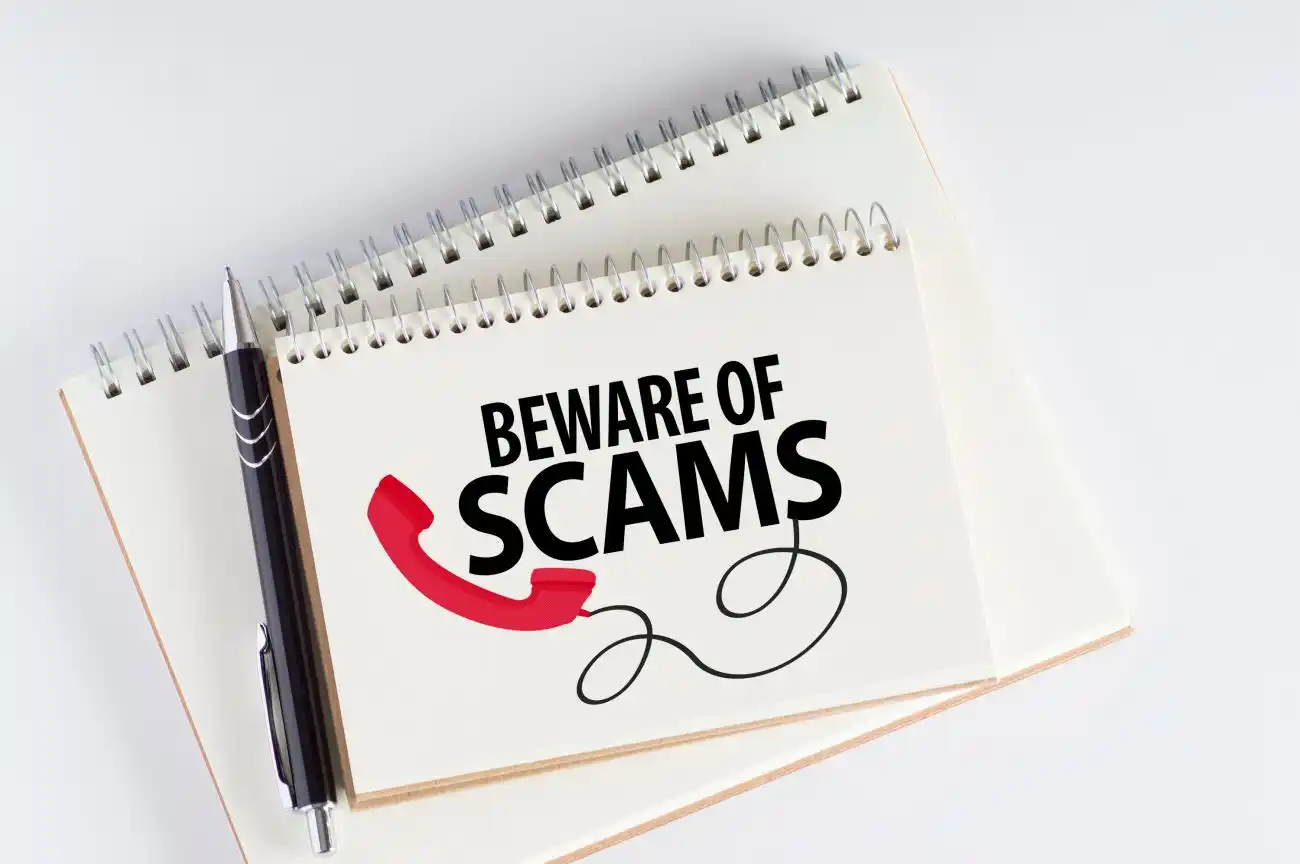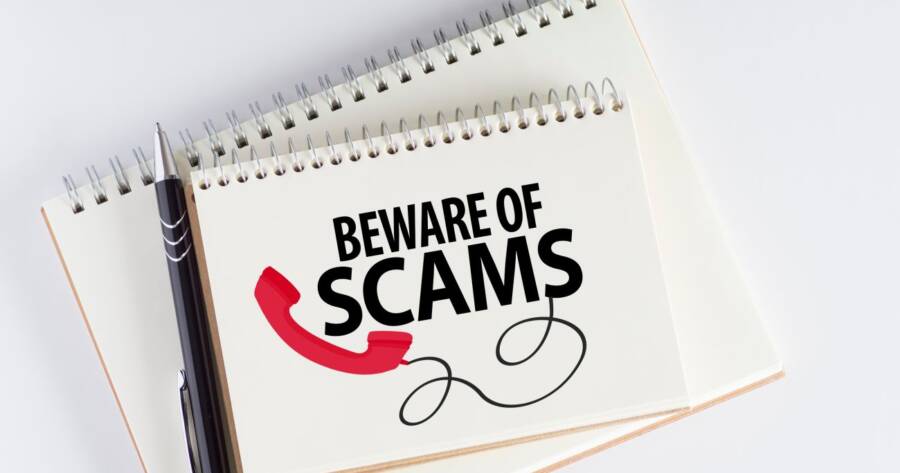Nothing is more appealing than getting something for free. Except, perhaps, the chance to get something extremely desirable for free.
Savvy marketers are well aware of this. So, they routinely use human nature against us in the form of “free” offers that aren’t. TV commercials, direct-mail packages, and pop-up ads swarm us daily with promises of free vacations, free electronics, and free credit reports. Sadly, the old adage “if it’s too good to be true, it probably is” applies to virtually all such promises.
To spare you from wasting time in pursuit of bogus “free” offers, WalletGenius warns against 12 of the most common.
1. Timeshares
Timeshares are one of the oldest “free” offer scams in the book.
Though not all timeshare arrangements involve dishonesty, some operate by baiting consumers with promises of a “free” trip to someplace desirable, only to inform them upon arrival that the trip is only free if they sit through an eight-hour sales pitch for the timeshare. Consumers who refuse to endure the pitch on the grounds that they were never told about it previously are then made to pay for their “free trip.” Furthermore, the timeshare often involves inconvenient usage times that are questionably worth the cost.
This illustrates a general principle that is helpful in avoiding similar scams. If the “offer” itself needs to be disguised with promises of free stuff, it probably isn’t worth the money.
2. Free Cruises
Cruises are another exotic giveaway dangled in front of consumers to placate them during various sales pitches.
It usually works in the following manner. Consumers are notified via e-mail that they have won a free cruise passing through somewhere exotic. Transportation to the cruise departure site is to be provided, so the only responsibility of the consumer is calling a toll-free number to accept their “prize.” Upon calling, however, it soon becomes clear that the “free” cruise they were promised is anything but. All sorts of sales pitches lie in wait for those who call, including timeshare deals, the option to purchase other vacation packages through the same provider, and various free trials that are mandatory to sign up for before accepting the cruise.
3. Free Cellphones
Free cellphone offers are as old as cellphones themselves.
The most frequent catch is that the phone is only free with the signing of a lengthy and exclusive service contract. Such offers mean that the phone is not “free” but rather that the cost of the service contract is simply discounted by the amount of buying the phone separately.
Other free cell phone offers involve dishonest Internet ads, which promise to hand over the free phone in exchange for filling out various surveys. These are usually in connection with signing up for free “trial” offers.
4. Free Credit Reports
You have to give websites like FreeCreditReport.com some credit. While other giveaways lure the consumer in before disclosing the catch, FreeCreditReport.com’s commercials flatly state — albeit rather quickly and at the very end — that the “free report applies only with enrollment in Triple Advantage,” which is a monthly, paid subscription service. Nevertheless, countless people have been done in by the various companies offering “free” credit reports and scores via radio and TV ads.
Luckily, there is no need to fall victim to these scams, as the government mandates every consumer can request one free copy of their credit report during each year independently of any scammy offer.
5. Free Xbox
Free Xbox offers are now so common that a Google search for “free Xbox” returns over 65 million results!
The scam typically unfolds when consumers are shown a pop-up ad promising them the free game console. Unbeknownst to consumers, clicking the ad leads not to the Xbox. Instead it leads to a labyrinthine maze of surveys, “offers”, and “free trial” signups. Several of these are mandatory to fill out before advancing closer to your free prize.
Suffice to say, very rarely does any of this lead to someone getting their hands on an Xbox for free. Although it does generate huge revenue for the various affiliate marketers involved in the scam.
6. Free iPod/iPhone/iPad
From a scammer’s standpoint, the phenomenal success of free Xbox offers spawned countless copycats offering essentially the same “deal” for hot Apple products. Whether it’s iPods, iPhones, or iPads, the “free” offer exhorts consumers to fill out endless surveys and forms. This racks up reseller commissions for the affiliates involved.
As with the free Xbox scam, it’s unclear whether anyone receives a free Apple product from enduring this grueling onslaught.
Several perpetrators of the scam have been shut down by the authorities, which, by itself, should tell you something. Other scammers have been sued by Apple directly for damage to their brand.
7. Free Wi-Fi
A newer type of free offer scam involves allegedly “free” Wi-Fi access at airports.
As ComputerWorld explained in 2007, web surfers at the airport are being lured to connect to networks with names like “Free WiFi!” and “Free Internet.” What these travelers don’t know is that they are being victimized by a “man in the middle attack” whereby a hacker “is able to steal the information you send over the Internet, including usernames and passwords.” If that weren’t bad enough, you are susceptible to having “your files and identity stolen, end up with a spyware-infested PC, and have your PC turned into a spam-spewing zombie.”
Of course, the reason that free Wi-Fi scam succeeds is that airports usually charge for wireless Internet. So, the prospect of getting online for free during a long layover or delay is sometimes too difficult to pass up.
8. Free Trials of Various Products and Services
Smart marketers utilize the “free trial” offer as a means of luring people into their sales funnels.
As with all the scams discussed above, the word “free” often packs enough emotional punch to get someone’s attention. Even if the product or service in question is not itself all that appealing to someone, the prospect of trying it for free can pique their interest.
However, as all too many of us are painfully aware, “free” trials are usually far from free. Generally, these trials ask consumers for their credit card, which will be charged automatically in 30 or 60 days unless you remember to manually opt-out of the trial.
Marketers study the results of such promotions and know that enough people forget to opt-out, which makes offering free trials profitable.
9. Free Plane Tickets
Free airline tickets are typically offered in conjunction with timeshare promotions. Rather than having a salesperson state upfront that they have a timeshare to sell, some companies simply offer “free” airplane tickets to exotic and desirable destinations. Eventually, they notify you that you must sit through a sales pitch for a timeshare.
This is a rather dated scam, so many consumers can spot it immediately. Sadly, marketers know that there will always be enough uninformed people to make running such “promotions” a lucrative endeavor.
10. “You’re the X visitor to this website” Freebies
When confronted with too-good-to-be-true offers, smart consumers often raise the objection: “Why am I being singled out for such a generous prize?”
Some scammers counter by couching their offers in ways that suggest you were chosen for a reason. An example most of us are familiar with is an Internet ad claiming that you have won a prize by being the millionth visitor to the website or some such. Though the smartest consumers still realize this is an absurd reason to be given a free flight or iPod, it works wonders on convincing the “somewhat, but not completely skeptical” crowd of web users.
Countless people have been led through the survey and free trial form completion maze in pursuit of the gift that passively visiting a website won them.
11. Mail-in Rebate Freebies
Still another way items are made to seem “free” long enough to dupe consumers is the rebate method.
Admittedly, not all rebates are scams. Legitimate retailers offer rebates as part of honest promotions for decades. What makes them honest is that consumers do, indeed, have the option of mailing in a rebate form to get some of their purchase price back.
Rebate scams, as you might already imagine, involve no such rebate. Rather, consumers are goaded into buying something with the promise of a rebate. Some scammers go so far as to actually provide what appears to be a rebate form that the consumer can mail in. However, it comes with the caveat that the rebate itself will not take effect for several weeks. By then, many consumers have either forgotten about the rebate or are too emotionally removed from the purchase protest the ripoff.
12. Lottery Winner Freebies
Some of the most egregious “free” offer scams involve bogus lottery winnings. For example, dishonest pop-up ads exclaim to consumers that they have won a randomly selected lottery drawing for thousands or millions of dollars. The money is ready and waiting for them to spend if only they’ll take a few moments to fill out some “offers” from the lottery’s “sponsors” first.
If you’ve followed along this far, you should already see the writing on the wall. There was no lottery and even if there were, you did not win its prize. The whole thing is nothing more than a front to con gullible web surfers into filling out surveys that credit the scammer with affiliate commissions.
 safriibrahim / Shutterstock
safriibrahim / Shutterstock







